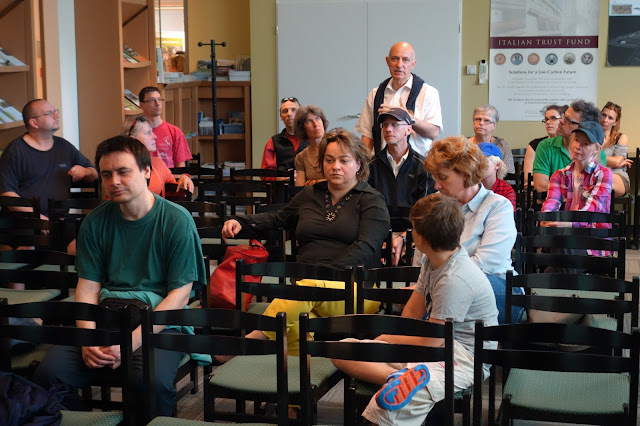 |
| Yay, cars! (Image taken out of context -- shamelessly -- from http://444.hu/category/ikertornyok/) |
Tarlós sealed his anti-sustainability campaign by getting the City Assembly to dismantle the Budapest Transport Centre (BKK), the supra-administrative body set up in January 2011 so that city transport -- including roads, motor traffic, parking and public transport -- could be managed in a coherent, integrated way.
Tarlós criticised BKK for "overstepping its remit" and creating an "extremely public transport-oriented" environment. The mayor believes car drivers have suffered too much under BKK's stewardship, so he came up with a proposal that essentially restores transport management to what it was five years ago. According to the Assembly's decision, BKK will be stripped of its authority over roads and motor traffic, and will now look after just public transport and taxi regulation. It also keeps the task of strategic planning, while being in a much weaker position to implement plans.
Management of roads and traffic will be given to a separate administration, the Budapest Public Road Authority (Budapest Közút Zrt.).
Last week's vote was just the last smash up in a slow-motion car wreck that began November, 2014, when the City Assembly, at Tarlós's urging, voted to subsume BKK under a higher-level administrative body (Budapest City Management Center -- Budapesti Városüzemeltetési Központ) controlled by the mayor. A month later, Tarlos canned Dávid Vitézy, the 20-something wunderkind who headed BKK and tallied many victories for public transport. Tarlós publicly derided Vitézy because he didn't know how to drive, and also because Vitézy was achieving things too quickly. In an interview a year ago, Tarlós explained it wasn't that he didn't like Vitézy's changes, he just didn't like the speed of the changes. The mayor replaced Vitézy with a more agreeable and, presumably, slower manager, and with last week's restructuring, the BKK menace was buried. It takes effect in April.
BKK was a progressive umbrella transport agency modeled on successful global examples such as Transport for London and the Land Transport Authority of Singapore. With control of roads, BKK could effectively boost alternatives to the car by reprioritising road space and traffic management. For example, BKK created several priority bus/bike lanes in the downtown area and established new bicycle lanes and on-street bike parking. BKK could also give buses and trams traffic-signal prioritisation -- and we can already see in recent weeks how a lack of signal priority is undermining the potential of the new 19 tram line. In addition, BKK could enforce traffic rules to protect sustainable transport, for example by towing cars parked on bus stops, bike lanes or on Bubi public bike docking stations.
This gave the the city an efficient tool to make public transport faster, more reliable and, thus, more attractive to the traveling public. As Vitézy noted in a recent response to Tarlos's move, revenues (from ticket and pass sales) for public transport grew by 20% during his four-year tenure at BKK, while fares stayed the same.
At first, BKK's castration might seem like a gift to motorists. But if it leads to a significant shift from public transport ridership and cycling to more car use -- and it's certain to do so -- traffic jams will get worse and everybody will suffer, including car users.
Lastly, this is sure to impair Budapest's ability to attract EU transport subsidies, because basic funding criteria favor projects that reduce congestion, save energy, improve air quality and combat climate change. Recent Budapest projects like the renovation of Margit Bridge, the new metro, the Fonodó tram project in Buda, and, of course, the Bubi bike share system, all received EU subsidies due to their positive environmental impacts. Tarlós's strategic direction completely contradicts these aims and just looks self-defeating.






















